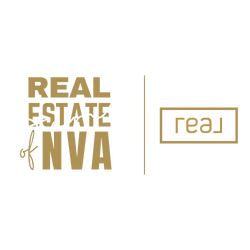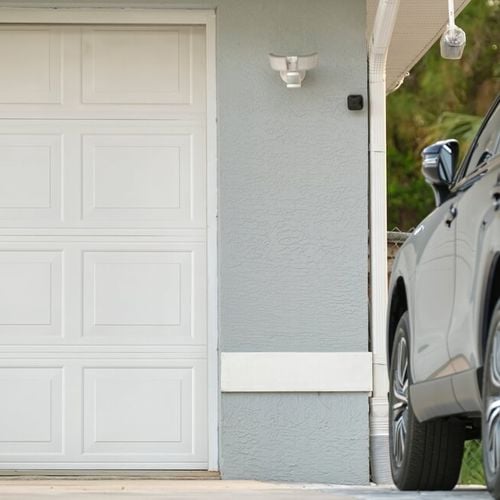Selling an inherited home can be a difficult decision, but it offers several benefits. Sometimes, selling a property is the easiest way to settle an estate. The beneficiaries can split the proceeds and use the windfall of cash to improve their financial standing. Letting go of the home may also help family members emotionally heal from the loss of their loved one.
If you’ve decided to sell an inherited house, you might feel lost on where to start. Selling inherited property is more complicated than selling a primary residence, so you need to fully understand the process before taking action. Here’s everything you need to know about selling an inherited home:

Understanding Probate
Probate is the legal process of validating and settling the estate of a person who has died. During probate, the decedent’s assets are used to pay their creditors. Then, the remainder of the assets are passed down to the beneficiaries of the will. If the decedent didn’t leave a will, state law determines the recipients of the assets.
Probate typically takes several months, but it can take more than a year in certain situations. Unfortunately, you cannot sell a home while it’s in probate. There are two situations in which homes can skip the probate process. First, the property can avoid probate if it’s put in a living trust with the beneficiaries clearly identified. A home can also skip probate if the decedent jointly owns it with someone else. For instance, an elderly parent may add their child’s name to the deed of their house before they die.

Taxes on Inherited Properties
There are tax liabilities for the sale of an inherited property, so it’s important to consult a financial advisor before you sell an inherited home. The most common tax burden is capital gains tax, which is calculated by subtracting the original purchase price of a home from the sale price.
You can use a stepped-up cost basis when paying capital gains tax on an inherited house. To do this, you use the value of the home at the time of the owner’s death instead of the original purchase price to calculate the profits. You can also subtract closing costs and home improvement expenses from the proceeds, which can further reduce your tax burden.
For example, you might inherit a home worth $500,000 at the time of your parent’s passing. Then, you sell it for $600,000, leaving you responsible for capital gains tax on the $100,000 difference. However, if you spent $30,000 on closing costs and home improvements, you’d only pay capital gains tax on $70,000 of the profit.
In some cases, beneficiaries also have to pay a federal estate tax. This tax only applies to properties valued at $1,361,000 or more. A few states charge an inheritance tax on inherited properties as well. Consulting with a financial advisor who’s familiar with estate planning and tax laws in your state is key.

Inheriting a Home With a Mortgage
Missing mortgage payments on an inherited home can cause complications when trying to sell the property. If your inherited home still has a mortgage, the estate must continue making the loan payments. When the probate process is complete and you’ve officially inherited the property, you are now responsible for making the mortgage payments. You should contact the lender directly to switch the loan over to your name.

Inheriting a Home With Others
In many cases, multiple siblings or cousins inherit one home when a family member passes away. If you inherited a home with others, you are all joint owners with an equal voice in deciding what to do with the property.
Selling a property that was passed down to multiple beneficiaries can be a stressful experience. Everyone is processing the loss in the family, so tensions can be high when dealing with the estate. Different family members often have different opinions on what to do with the home. Working with a financial advisor or attorney in this situation can be incredibly helpful. A third party will provide an objective overview of the pros and cons of each option, which can help you and the other beneficiaries come to an agreement.

Steps to Selling an Inherited Home
Selling an inherited property is similar in many ways to selling your primary home, but there are a few important differences. Here are the five main steps to selling an inherited home:
1. Get a Time of Death Appraisal
A time of death appraisal determines the value of the home at the time of the owner’s passing. This is essential for calculating capital gains tax, so it should be one of your first tasks when preparing to sell the property. The appraisal needs to be completed within six months by a qualified appraiser.

2. Clean Out the Home
Cleaning out an inherited home can be a time-consuming, exhausting process. Older adults often leave a lifetime of items in their homes, and their beneficiaries have to donate, sell, and discard as much as possible.
A clean and organized home leaves a better impression on buyers. You should remove as many items as possible from the house before you put it on the market. This might require you to rent a storage unit or move things into your primary residence. As you clean out the property, you should also consider whether you’ll sell the home as-is or make upgrades or repairs before listing it. This decision heavily depends on the state of the real estate market.
3. Hire a Real Estate Agent
Hiring the right real estate agent is vital when selling an inherited home. Because selling inherited property is somewhat different than selling a primary residence, you should look for agents who have experience with this process. Your agent should also have experience selling homes of a similar size and value to the house you’re selling.
Estate attorneys and financial planners sometimes recommend real estate agents to their clients. When this happens, they typically have a mutual agreement with the agent to refer clients to one another. This doesn’t mean you should ignore the referral, but keep in mind that the agent recommended by your attorney is not necessarily the best fit for your case. Researching agents independently is usually the best course of action.
4. List the Property and Evaluate Offers
Your agent will handle the listing and marketing of your home, but you should be involved in all decision-making. If possible, avoid marketing the house as an inherited property. When buyers know a home is inherited, they tend to make lower offers because they assume the sellers are trying to get rid of it as fast as possible.
Your agent will also help you analyze offers and choose the best option. The offer price is usually the most important consideration, but you should also factor in the contingencies and the buyer’s timeline for closing.

5. Consult With Your Tax Advisor
After selling the house, consult with your financial advisor or tax professional on how to pay the capital gains tax. You’ll need to provide the appraisal, the settlement statement, and receipts for any home improvements you made before selling. Be sure to set aside some funds from the proceeds of the sale for taxes so that you’re not left scrambling to come up with the money.
BOTTOM LINE
Selling an inherited property has its unique challenges and considerations, but your tax expert, estate planner, and real estate agent can all assist you throughout the process. If you have any questions about the laws or procedures involved in selling an inherited home, you should consult one of these professionals right away.
As always . . .
Be sure to check out the:
- Home Valuation Tool
- Reach out for your personalized Home Value Report
- Calculate your future mortgage
Don’t forget the Home Buying and Selling Guides !
Never miss an issue by subscribing below and I look forward to speaking with you soon about your free Home Preparation and Market Analysis consultation!




